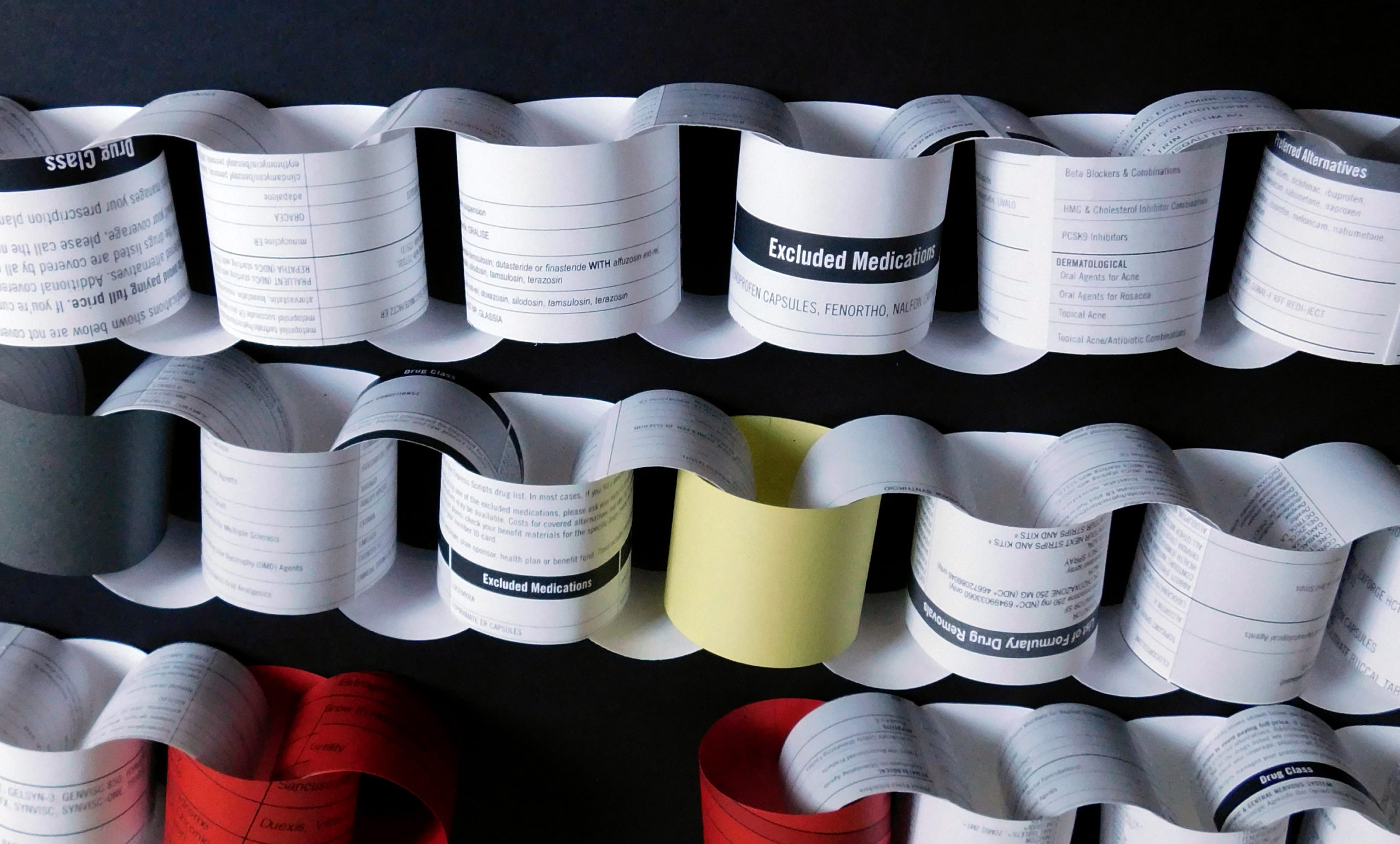Blog by Katy Giebenhain
On this side of the pond access to medicines is called “complicated” and that’s no accident. As Fran Quigley points out in his introduction to Prescription for the People: An Activist’s Guide to Making Medicine Affordable, calls for reform get bogged down in technical terms and acronyms. Furthermore, he writes, “[T]his thicket of complexity provides cover for corporations that rely on the for-profit medicine model and are determined to protect the status quo.”[1]
And the status quo is alarming.
The practice of drug formulary exclusions is just one of our bountiful barriers to access in the U.S. There is surprisingly little resistance to it, but tons of exasperation. Impeding access is about more than outright denial. Drug formulary exclusions serve to increase shareholder profits. The motivation behind these decisions is not complicated at all.
What can we do? The Welsh poet R.S. Thomas called a metaphor “a shortcut.” I love that. A good metaphor is efficient. A good metaphor gets the job done. We could use such shortcuts to start real conversations in the face of jargon and intimidation surrounding access to medicines, and to this one practice in the midst of the pharmaceutical industry’s intentional complications.
So, here’s a visual metaphor. In this illustration strips of printed formulary exclusions from one of the largest pharmacy benefit managers (PBMs) in the country are made into chain links. You can hardly get more accessible than the act of making handcrafted paper chains. Just give a child a glue stick.

Paper is powerful, even in this digital age. A valid passport, an expired passport, a divorce subpoena, test results, lottery tickets, university degrees, protest signs, currency, love letters, employment contracts… paper can change your life.
When a drug flies off the formulary the preauthorization process arguing for its importance to the patient takes time from clinicians and their staff and can be denied despite everyone’s best efforts. The process also undermines clinician authority. While most changes go into effect at the beginning of a calendar year, they can occur at any time. Patients are “free” to continue taking a medication that is effective for them, or that comes in cartridges that fit their delivery device if they wish to pay cash, as if they had no insurance at all.
It’s a curious blind spot in a country that is usually so wild about choice. Have you walked down the breakfast cereal aisle in an American supermarket? We specify the milkfat percentage and flavourings in coffee shops with nuanced precision. How many channels do you watch on how many devices? But what if we were informed that we could only purchase a Ford this January, if that were declared the preferred automobile brand of 2021? We could technically go to other dealerships but suddenly the cost of a Subaru or a Volkswagen would leap exponentially. What if we could only purchase cell phones from a single company? Think of the outcry. And yet, there is a meekness surrounding the medicines we put into our bodies, which are arguably more important than other consumer choices. That is what a drug formulary exclusion does.
In addition to data, research articles, and patient stories we need more clarity. We need more urgency, because the chain metaphor rings true. Formulary exclusions hold us down and hold us back. None of us knows when our lives, or the quality of our lives will depend on a medication. It should not be a partisan issue. It should not be a patient issue. All clinicians are patients, after all. It is doubly in the interest of clinicians to push back against the practice.
PBMs are middlemen. Like pharmaceutical companies, competition-killing patent laws and PhRMA lobbyists they use complexity to serve their needs. Any way to see their barriers more clearly can help us to improve access, including, perhaps, a few lengths of paper chains.
Katy Giebenhain is the author of Sharps Cabaret (Mercer University Press). Her poetry MPhil is from University of South Wales.
References
[1] Quigley, Fran. Prescription for the People: An Activist’s Guide to Making Medicine Affordable, Ithaca and London: Cornell University Press, 2017, p. 3.